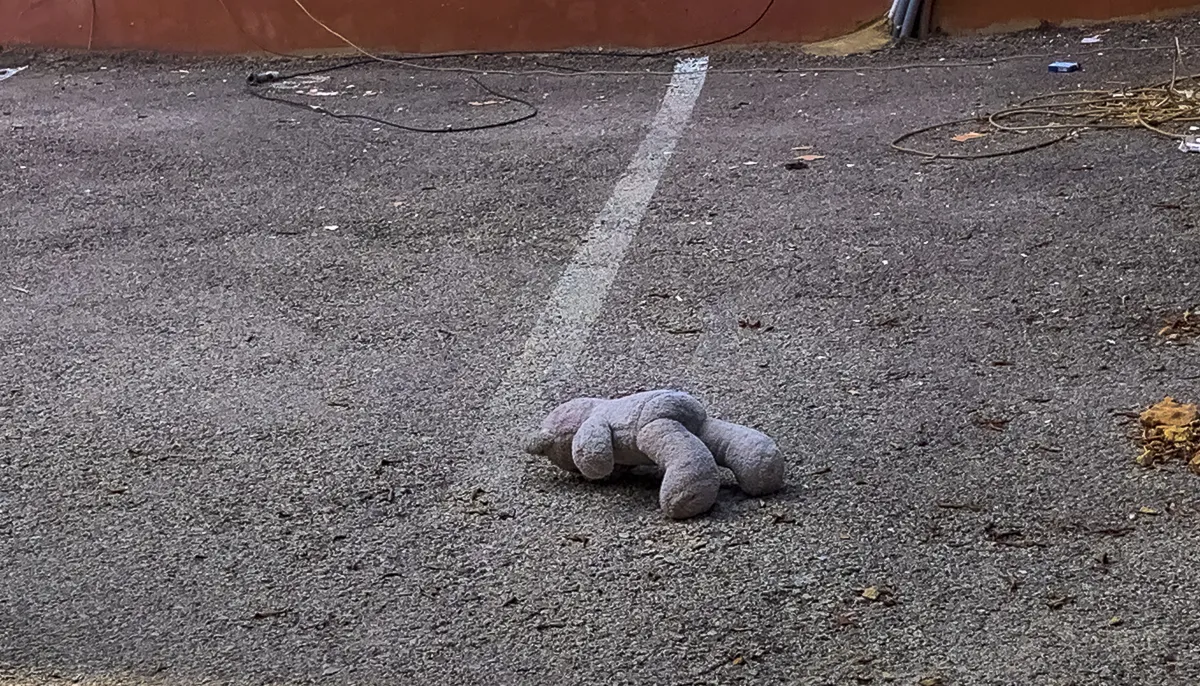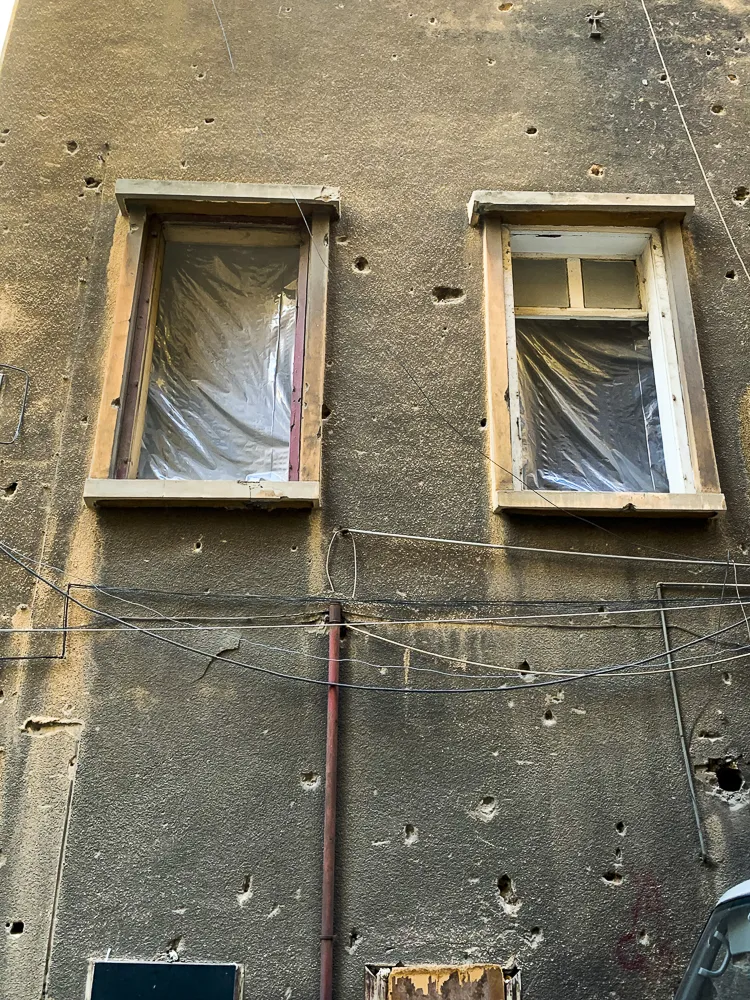“In my house, there is nothing at all. The only thing I have is this gas that I use for cooking,” Wafaa Khaled says as she lifts the canister. “I wanted to cook today, but I found the gas cylinder was completely empty.”

Almost three years after the onset of the economic crisis in Lebanon, and two years after the Beruit port explosion, everyday life has yet to return to normal. Photo by Patricia Khoder.
Almost three years after the onset of the economic crisis in Lebanon, and two years after the Beruit port explosion, everyday life has yet to return to normal. Photo by Patricia Khoder.
“In my house, there is nothing at all. The only thing I have is this gas that I use for cooking,” Wafaa Khaled says as she lifts the canister. “I wanted to cook today, but I found the gas cylinder was completely empty.”

Wafaa lives in an apartment with her three boys — Wissam, 7; Jihad, 5; and, Youssef, 1. The 41-year-old single mom struggles to make ends meet as numerous crises converge in the country.
The financial crisis came first. It began in 2019, and since then Lebanon’s currency has lost 99% of its value, and more than two-thirds of the population lives below the poverty line.
This crisis — and then the 2020 port explosion — has only fueled an already dire hunger crisis where supermarket shelves sit empty and the cost of food soared 700% in two years.
On the two-year anniversary of the port explosion, Bujar Hoxha, Lebanon Country Director, called on the international community to not forget the people of Lebanon, including its communities of refugees and migrants, who are “sliding deeper into poverty every day.”
“For all of them, buying a bag of bread, filling the car tank with fuel or having electricity has become a luxury.”
This is the everyday reality for mothers like Wafaa.
“I cannot take my kids out of home, because if I take my kids out of home to the public garden, they will see with their own eyes grilled chicken, and I am not able to provide or buy grilled chicken for my own kids.”
Wafaa gives a tour of her home
Because Lebanon has traditionally relied on Ukraine for more than 50% of its wheat, the war there has caused food prices to skyrocket even further and kept basic foods out of reach. In the past year, the cost of a food basket – the minimum food needs per family per month – reported an annual increase of 351 percent, according to the World Food Program.
This hunger impacts every facet of Lebanese daily life — families struggle to find a way out of poverty, kids don’t do as well in school, and babies who do not get the right nutrition early in life may never reach their full potential as adults.
It only takes a trip to her local grocery store for Wafaa to see the fallout that the economic and food crisis has on her own family.
“Today, I went down to buy children’s milk. A bag for kids, 750 grams, it’s price today is 140,000 Lira, which means it is very, very expensive here.”
“I need to work two full days to be able to buy it for my son.”
Wafaa shops for children’s milk
And it’s not just food — soaring prices also mean Wafaa cannot afford basic medications after taking her sons to the doctor.
“I have just brought my kids back from the doctor’s. I don’t have a penny to buy one single medicine for my three kids.”
This is especially troubling as health and nutrition are deeply interwoven. When food is scarce, women and children in particular have fewer of the nutrients that are vital for boosting immune systems to fight disease, like COVID-19. High rates of anemia for pregnant women and children increase these risks.
Despite the circumstances, Wafaa remains resilient.
When crisis hit, studies show that women like Wafaa take on hundreds more hours of unpaid work compared to men. They care for sick family members, ensure kids get to school, buy and cook meals, clean the home, and perform countless other tasks that ensure families and communities survive.
Women also often eat least and last, only after everyone else in the family has eaten. This puts women at a disadvantage for their health and futures, but over and over again CARE has seen that, despite the personal risk, women do the necessary work.
Wafaa and her kids brace for the cold
Around the world today, less food is available, available food is less accessible, and accessible food is not affordable. CARE is responding to the global hunger crisis, from emergency response and treatment for malnutrition to addressing gender inequality in farming and food systems so that everyone can access the food they need when they need it. Food is life, and the key to a better future.
Learn more about CARE’s response to the global hunger crisis here.